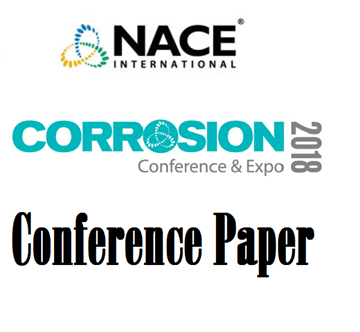Search
11111 Corrosivity studies of Well Completion Fluids Comprising ZnCl2/CaCl2 on N-80 Steel
Also Purchased
11114 Hyperduplex Stainless Steel, UNS S33207, for Raw Seawater Injection
Product Number:
51300-11114-SG
ISBN:
11114 2011 CP
Publication Date:
2011
$20.00
51318-11509-Assessment of materials compatibility with high density Brines for completion fluid of HPHT wells
Product Number:
51318-11509-SG
Publication Date:
2018
$20.00
11100 Environmentally Assisted Cracking Testing of High Strength 15Cr Steel in Sour Well Environments
Product Number:
51300-11100-SG
ISBN:
11100 2011 CP
Publication Date:
2011
$20.00




